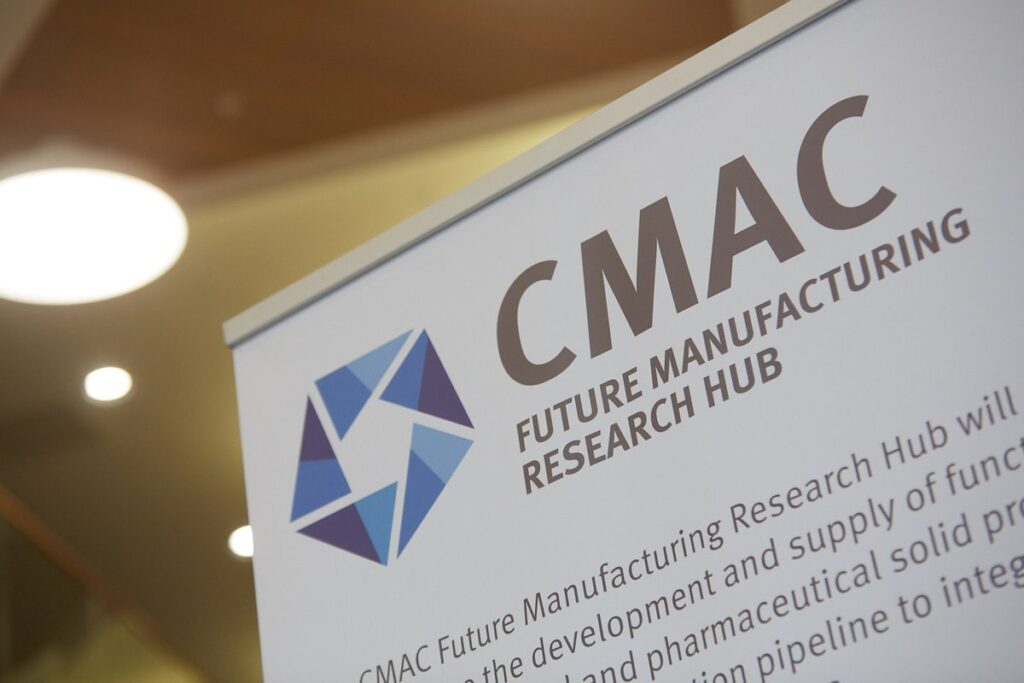
The University of Strathclyde’s Continuous Manufacturing and Crystallisation Centre (CMAC) is a world-class international hub for manufacturing research and training. Working in partnership with industry, its purpose is to transform current manufacturing processes into the medicine supply chain of the future.
The Centre uses revolutionary manufacturing techniques developed to speed up the process of bringing new drugs to market, and help make precision medicine an economically viable reality.
The centre, in collaboration with partners including Graz and Nanyang Technological University, provides CMAC with an industrial base in the local region, and demonstrates how international research partnerships can be harnessed for local economic impact.
- conducts world class research in continuous manufacturing and advanced crystallisation;
- conducts fundamental research;
- develops new solutions to company specific problems;
- delivers measurable successes that are of real benefit to society;
- creates commercial opportunities for start-ups and major global companies;
- produces a talent pipeline of highly skilled multi-disciplinary staff;
- influences policy, government, and regulators;
- understands and integrates with the broader supply chain context
- collaborates with world class business and academia on an international basis.


